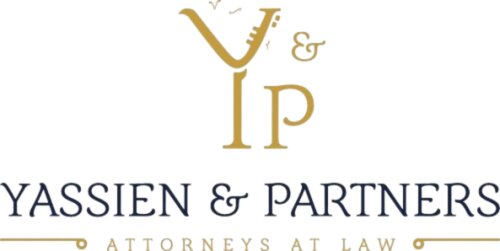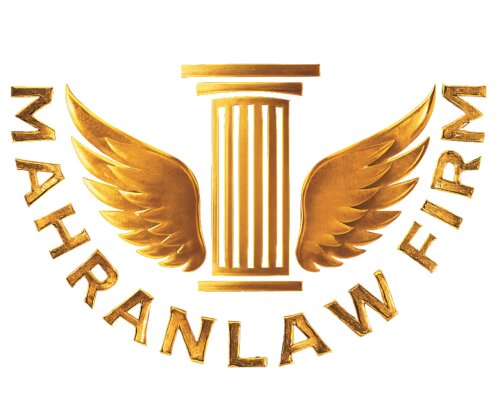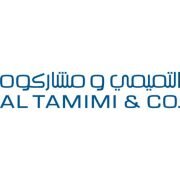Best Sanctions & Export Controls Lawyers in Agouza
Share your needs with us, get contacted by law firms.
Free. Takes 2 min.
List of the best lawyers in Agouza, Egypt
About Sanctions & Export Controls Law in Agouza, Egypt
Sanctions and export controls are rules that restrict trade, financial transactions, and the transfer of certain goods, technologies and services to specific countries, entities or individuals. In Egypt these rules are implemented at the national level and are also influenced by international obligations such as United Nations Security Council resolutions. Agouza is a district in Giza within Greater Cairo, so residents and businesses in Agouza are subject to the same national laws and administrative procedures that govern the rest of Egypt.
Export controls typically cover military items and dual-use goods and technologies that have civilian and military applications. Sanctions can include asset freezes, trade embargoes, travel bans and restrictions on financial transactions. Enforcement may involve customs authorities, banks, licensing authorities and criminal prosecutors. Because sanctions regimes can also be imposed by third countries or international organizations, businesses in Agouza that trade internationally must be aware of both Egyptian requirements and relevant foreign measures that could affect their transactions.
Why You May Need a Lawyer
Sanctions and export controls are complex and can involve civil, administrative and criminal consequences. You may need a lawyer if you face any of the following situations:
- A customs seizure or hold on goods at the border.
- A bank freezes funds or refuses to process a transaction because of sanctions concerns.
- You need an export license for controlled or dual-use items, or for technology transfers.
- Your company is under investigation by customs, the Central Bank of Egypt or prosecutors for alleged sanctions breaches.
- You are involved in a cross-border sale, distribution agreement or merger where counterparties may be on sanctions lists.
- You need to design or review a sanctions compliance program, perform risk-based due diligence or train staff.
- You need to make a voluntary disclosure to authorities or defend against administrative penalties or criminal charges.
Lawyers experienced in sanctions and export controls can analyze legal risk, represent you before regulators and courts, prepare and submit license applications or voluntary disclosures, negotiate mitigation, and help establish compliance systems to reduce future risk.
Local Laws Overview
Sanctions and export control obligations in Egypt are implemented through a mix of laws, regulations and administrative practice. Key points to understand:
- National versus international - Egypt implements UN Security Council measures and may apply its own national restrictions. In practice, international regimes and foreign sanctions can also affect Egyptian entities if transactions touch foreign financial systems or partners.
- Responsible authorities - enforcement and licensing involve multiple bodies, including customs authorities, ministries responsible for trade and industry, the Central Bank of Egypt for financial controls, the General Organization for Export and Import Control and prosecutorial authorities for criminal matters.
- Controlled items - military goods, dual-use items, certain technologies and technical assistance may require prior export authorization, end-user certification and compliance with specific lists or schedules adopted by the relevant agencies.
- Licensing and documentation - exporters and brokers generally must obtain permits or licenses for controlled goods. Customs declarations, end-user statements and technical documentation are common documentary requirements.
- Bank controls and foreign currency - banks play a key role in screening transactions and may block payments if a sanctions risk is detected. Central bank rules on foreign exchange and documentation can affect cross-border payments.
- Enforcement and penalties - potential outcomes for non-compliance include administrative fines, seizure or forfeiture of goods, suspension of licenses, and in serious cases criminal prosecution. Cooperation with authorities and timely legal advice can influence outcomes.
- International interplay - companies should be mindful that sanctions imposed by other jurisdictions can have extraterritorial effects. Practical compliance therefore requires screening counterparties, understanding end-use risks and monitoring changes to relevant foreign lists and embargoes.
Frequently Asked Questions
What is the difference between a sanction and an export control?
Sanctions are measures that restrict dealings with particular countries, entities or individuals - for example asset freezes or trade embargoes. Export controls are rules that limit the export or transfer of specific goods, software and technology - especially military items and dual-use goods - regardless of the destination. Both can overlap when controlled items are subject to a sanctions regime.
Who enforces sanctions and export controls in Egypt?
Enforcement is shared across agencies. Customs inspect and detain goods, the Central Bank of Egypt monitors financial transactions and foreign exchange, ministries and specialized bodies handle licensing and technical classification, and prosecutors enforce criminal provisions. Administrative agencies issue fines and licenses. The exact agencies involved depend on the nature of the transaction.
How can I check whether a counterparty is on a sanctions list?
There are official national and international sanctions lists. In practice, companies use screening tools to compare names, addresses and identifiers against lists maintained by the United Nations and other jurisdictions. Because lists change, screening should be ongoing and complemented by manual reviews for false positives and aliases. A lawyer can help interpret matches and advise on next steps.
My shipment has been detained by customs in Agouza or nearby Cairo. What should I do?
Preserve all shipment documents and communications, do not attempt to move the goods, and seek legal advice immediately. A lawyer can help obtain information from customs, prepare documentation to support release, negotiate a resolution, and advise whether a voluntary disclosure or appeal is appropriate.
Do Egyptian companies have to follow foreign sanctions, such as US or EU measures?
Egyptian law primarily enforces national and UN measures. However, foreign sanctions can have practical effects - for example, banks may refuse to process payments to sanctioned parties, or foreign partners may impose contractual restrictions. Businesses dealing in international markets should understand relevant foreign sanctions because of these practical and contractual consequences.
What penalties can result from non-compliance?
Penalties can include administrative fines, seizure or forfeiture of goods, suspension or revocation of export privileges, reputational damage and criminal prosecution in severe cases. Penalties depend on the nature of the violation, the item involved and whether the breach was intentional or negligent.
Are there exceptions for humanitarian or medical goods?
Many sanctions regimes and export control frameworks provide exemptions or licensing routes for genuine humanitarian, medical and emergency relief goods. The exact scope and process vary by regime, so you should consult authorities or a lawyer before relying on an exemption.
How long does it take to obtain an export license?
Timing varies by item, destination and the issuing authority. Routine licenses for non-sensitive goods can take days to weeks. Licenses for dual-use or military-related items, or for destinations subject to higher scrutiny, can take longer. Start the licensing process early and work with counsel to prepare a complete application.
What does a sanctions compliance program look like for a small business?
A practical program includes senior management commitment, written policies, customer and counterparty screening, training for relevant staff, transaction and document checks, record-keeping, and a process for escalation and legal review when risks are identified. Proportionality is important - the program should match the size and risk profile of the business.
If my bank freezes a payment for sanctions reasons, can a lawyer help?
Yes. A lawyer can communicate with the bank, request the basis for the freeze, advise whether a legal challenge or voluntary disclosure is appropriate, and assist in preparing documents to unblock funds where possible. Acting quickly and cooperating with counsel tends to produce better results.
Additional Resources
Entities and resources that can be helpful when dealing with sanctions and export controls in Egypt include:
- Central Bank of Egypt
- Egyptian Customs Authority
- General Organization for Export and Import Control (GOEIC)
- Ministry of Trade and Industry
- Ministry of Foreign Affairs
- Public Prosecution and relevant administrative authorities
- Egyptian bar associations and law societies for referrals to experienced counsel in Cairo and Giza
Internationally relevant organizations and instruments to monitor include the United Nations Security Council, foreign sanctions authorities in relevant jurisdictions, and multilateral export control arrangements such as the Wassenaar Arrangement and other nonproliferation groups. Industry associations and trade chambers can also provide practical guidance for exporters.
Next Steps
If you believe you need legal assistance with sanctions or export controls in Agouza, consider the following steps:
- Identify and document the problem - collect contracts, shipment records, invoices, correspondence, export declarations and any notices from banks or authorities.
- Stop potentially risky activity - avoid further shipments, payments or communications that could worsen the situation until you get legal advice.
- Contact a lawyer experienced in sanctions and export controls - look for counsel with experience in Egyptian administrative, customs and criminal practice and with cross-border expertise if foreign sanctions may be relevant.
- Prepare for an initial consultation - list key facts, timelines and the specific relief you need. Ask about experience with customs detentions, banking freezes, voluntary disclosures and compliance program design.
- Expect an engagement letter that sets out scope, fees and confidentiality terms. Ask how the lawyer will liaise with authorities and your bank, and whether bilingual support in Arabic and English is available.
- Implement or improve compliance measures to reduce future risk - a lawyer can help tailor policies, screening tools and training to your business.
Early legal involvement increases the chance of a favorable outcome. If you are unsure where to start, a brief consultation with a local lawyer can clarify risks and practical next steps specific to your situation in Agouza.
Lawzana helps you find the best lawyers and law firms in Agouza through a curated and pre-screened list of qualified legal professionals. Our platform offers rankings and detailed profiles of attorneys and law firms, allowing you to compare based on practice areas, including Sanctions & Export Controls, experience, and client feedback.
Each profile includes a description of the firm's areas of practice, client reviews, team members and partners, year of establishment, spoken languages, office locations, contact information, social media presence, and any published articles or resources. Most firms on our platform speak English and are experienced in both local and international legal matters.
Get a quote from top-rated law firms in Agouza, Egypt — quickly, securely, and without unnecessary hassle.
Disclaimer:
The information provided on this page is for general informational purposes only and does not constitute legal advice. While we strive to ensure the accuracy and relevance of the content, legal information may change over time, and interpretations of the law can vary. You should always consult with a qualified legal professional for advice specific to your situation.
We disclaim all liability for actions taken or not taken based on the content of this page. If you believe any information is incorrect or outdated, please contact us, and we will review and update it where appropriate.













